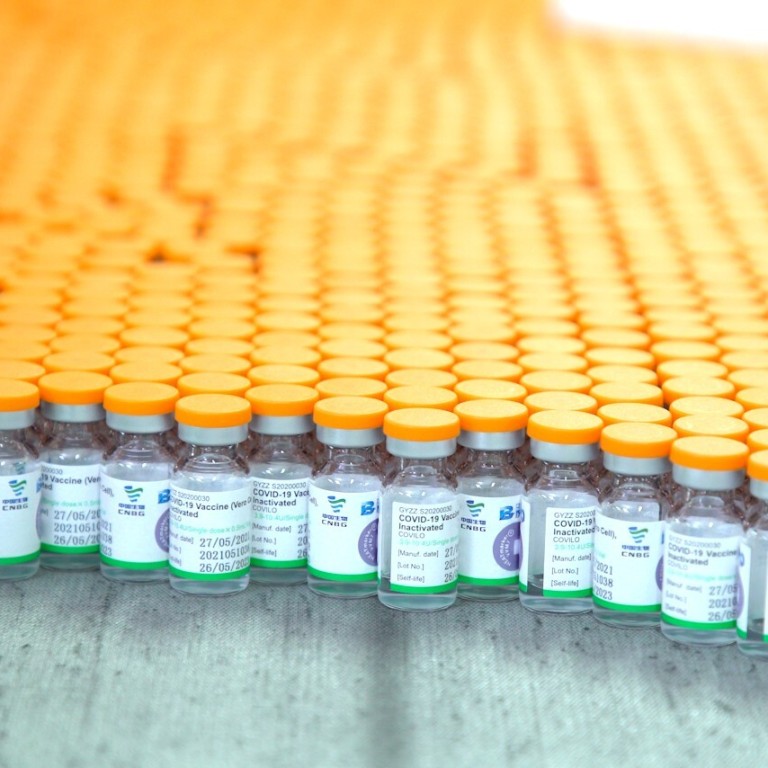
Chinese vaccine firms to rush 110 million doses to Covax now, half a billion by mid-2022
- Sinovac and Sinopharm sign advance purchase agreements to provide more doses and diversify the Covax portfolio to help developing nations beat the pandemic
- Gavi, the Vaccine Alliance has the option to extend its purchase of Chinese vaccines, alleviating a shortfall created by the virus surge in India
Gavi, the Vaccine Alliance, a public-private partnership which buys vaccines for Covax, said in a statement on Monday that 60 million doses from Sinopharm would be made available between this month and October and Sinovac would provide 50 million doses of its vaccines by the end of September.
Gavi has the option to buy a further 60 million doses in the fourth quarter this year and 50 million more doses in the first half of next year from Sinopharm. In the agreement with Sinovac, Gavi can buy a further 150 million doses in the fourth quarter of 2021 and 180 million more doses in the first half of 2022.
“I welcome today’s agreements with Sinopharm and Sinovac which will make doses immediately available to Covax participants,” Gavi CEO Seth Berkley said. “Thanks to this deal, and because these vaccines have already received WHO emergency use listing, we can move to start supplying doses to countries immediately.”
Now for the big Covid-19 test: how well do vaccines work in the real world?
Real-world effectiveness results from Chile, published in the New England Journal of Medicine last Wednesday, showed that the Sinovac vaccine was 65.9 per cent effective against the new coronavirus, 87.5 per cent effective at preventing hospital admissions and 86.3 per cent effective at preventing death.
But little data is available on how well the vaccine stands up against the Delta variant. Several countries, including Indonesia, are offering booster doses to people initially inoculated with the Sinovac vaccine.
Sinovac chief executive Yin Weidong said in a statement the company had delivered over 1 billion doses globally by the end of June 2021 and the vaccine’s advantage in “safety and regular transportation and storage conditions” supported easy access to the vaccine “in every corner on the globe”.
Some 2.91 billion doses are expected to be produced by the end of this year, according to London-based information and analytic firm Airfinity.
China National Biotec Group, Sinopharm’s vaccine manufacturing arm, said in a separate statement that a second facility that had started production earlier this year would supply 1 billion doses to Covax when the facility passed WHO good manufacturing practice.
What does Africa need to make more coronavirus vaccines?
Gavi said the two vaccines would diversify the Gavi-managed Covax Facility portfolio, which included 11 vaccines and vaccine candidates, including shots from AstraZeneca-Oxford, Janssen, Moderna, Novavax and Pfizer-BioNTech.
Last month Gavi signed an advance payment agreement with Chengdu-based Clover Biopharmaceuticals to provide up to 440 million doses of protein-based vaccines next year.

